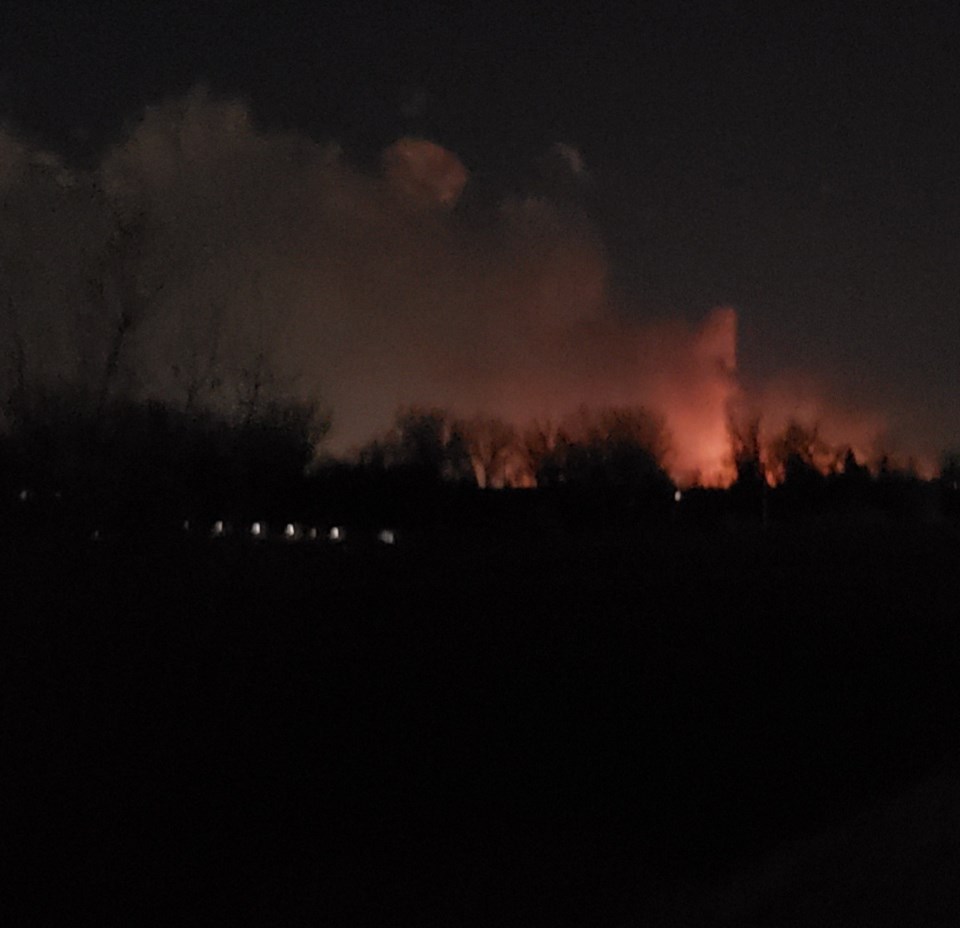Friday marks the one-year anniversary of the Marshall fire, which caused more than $2 billion in losses, according to the latest assessments.
But many impacts of the Marshall fire can’t be measured, said Lisa Atallah, a Louisville resident who was forced to flee the fire. While her home was spared, she witnessed entire communities destroyed.
“It was like a war zone here for six months — neighborhoods all around here were completely gone,” Atallah said. “Even the homes standing have had a lot of issues with insurance and getting things covered … we’ve all had to deal with smoke mitigation, outside damage to our homes, carpeting, painting and all sorts of things of that nature.”
The loss of a beloved pet, treasured family heirlooms or a home full of memories in the fire are priceless — and impacts of the stress and anxiety that come with those losses also can’t be measured, she said.
Assessing the expenses that can be measured, however, the fire was the costliest in Colorado’s history. Some remaining expenses are still rising and may not be known for several years, said Boulder County Commissioner Claire Levy.
“The county’s expenses are in the nature of the rebate for sales tax that we agreed to, which will come out of our general fund,” Levy said. “We anticipate over the course of three years … that being about $3 million.”
Then there are unanticipated expenses, such as straight-line wind damage to mobile home parks in Boulder County, she explained. The county appropriated $850,000 per mobile home park repair.
“They suffered a lot of damage — FEMA’s not going to cover that, and the community foundation funds that they raised for fire survivors won’t be able to help those mobile homeowners,” Levy said. “So we’ll have expenses from a number of different areas.”
The Boulder County Assessor’s Office estimated in early 2022 that residential damage from the Marshall fire was nearly $230 million in Louisville, $153 million in Superior and $131 million in unincorporated Boulder County. But more assessments and claims have likely pushed those numbers far higher — many fire survivors were under-insured as building costs skyrocketed, Levy said. The Board of County Commissioners approved in early December the reduction of permit fees for rebuilding homes destroyed by the fire.
Renters who lost their homes in the Marshall fire also incurred some of the highest costs, Levy said.
“If you carry renter’s insurance, it only covers the contents of your apartment, your condo, or whatever it is you’re renting, and the property owner insures the structure,” she said. “Even though homeowners may be under-insured, at least they have something to help them.”
The county launched its Recovery Navigators program earlier this year to help connect residents, including renters, with recovery resources, legal referrals, mental health services and other resources provided by local, statewide and federal agencies and organizations.
Fire mitigation funds after a catastrophic wildfire are — and should be — some of the biggest expenses, according to a recent report by the Western Forestry Leadership Coalition. Boulder County voters approved Nov. 8 ballot measure 1A, a wildfire mitigation sales tax, which is expected to raise $11 million in the first year for fire defense, fire-resistant building, forest and grassland management, watershed protection, financial assistance for homeowners, fire mitigation staffing and other initiatives. Voters also approved additional funding for emergency services to help firefighters with equipment upgrades, training and new facilities.
“Primarily 1A is going to help us in the future with a 1 cent per $10 purchase sales tax to expand the programs that we’re already doing to the plains — the Wildfire Partners program, where we’ll be partnering with municipalities to look at homes in the plains and what can be done to make them more wildfire resistant,” Levy said.
Lisa Atallah and her comfort dog Juno now volunteer their time helping Marshall fire survivors as members of the Boulder Strong group. The pair most recently attended a gathering for a planned memorial in honor of pets lost in the fire.
“I think everybody just needs to take a step back and realize what everyone has gone through, and just be gentle, kind and as friendly and compassionate as you can be,” Atallah said. “We just need to support each other and do as much as we can to get back to a good place.”

.jpg;w=120;h=80;mode=crop)

